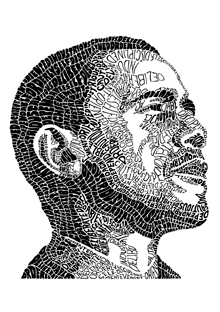The Secret to Obama's Success: He's Boring?

Illustration: Sarah King
Some people love their drama, drama, drama. But for career success—and long life—there's nothing like good old dependability.
"You're becoming a bore," Barack Obama's roommate chided him during his student days at Columbia University. For a guy used to being in the cool crowd, it was a "scathing indictment," the president recalls in his memoir Dreams from My Father—but he admits there was some truth to it. By then, he writes, he was concentrating on his studies, running 3 miles a day, fasting on Sundays. And no more getting high. All in all, his was becoming a rather predictable, disciplined life. "Boring" might not be the first adjective that comes to mind to describe our president, but it was "No Drama Obama" who assured the nation with his steady composure and won the White House. Aubrey Immelman, PhD, associate professor of psychology at the College of Saint Benedict/Saint John's University in Minnesota, says the variable that most distinguishes Obama from the two previous presidents is conscientiousness—one of the "big five" personality factors in standard psychology (everyone has all five, in differing degrees; the others are openness to experience, extroversion, agreeableness, and neuroticism).
People who score high on the conscientiousness scale (as determined by several personality inventories) are dependable, orderly, self-disciplined, achievement oriented, cautious, industrious, and deliberate—the type who could, say, run a masterfully efficient political campaign, exercise daily, even while on the road, and make methodical decisions. (Those who score low tend to be careless, irresponsible, disorganized, and unreliable.) Indeed, a 2000 study from the journal Assessment suggests that when it comes to presidents, conscientiousness is associated with greatness: George Washington, Woodrow Wilson, Dwight Eisenhower, and Harry Truman (all of whom historians rank among the country's foremost leaders) scored in the 90th percentile and above for the trait, based on inventories completed by biographical experts. Thomas Jefferson and Abraham Lincoln were solidly conscientious (78th and 75th percentile); Bill Clinton and John F. Kennedy, however, came in at the 5th percentile.
But here's where those of us without an Oval Office can get excited. While conscientiousness may lead to political heights, a growing body of research shows that it also predicts a longer life. In fact, scoring low for conscientiousness is as detrimental to longevity as cardiovascular disease, says Brent Roberts, PhD, a professor of psychology at the University of Illinois, Urbana-Champaign. The effect makes sense: Responsible, disciplined people tend to eat well, exercise regularly, see their doctor more often, and refrain from smoking and drunken driving. They're more likely to succeed at work, enjoy stable marriages, have larger families, and engage with their community, according to studies—all factors that promote good health.
The big question: Can you bottle conscientiousness? Or cultivate it? Roberts believes you can actively work to increase the trait over time. He suggests making small changes that focus on its various aspects, such as discipline (exercising more regularly), responsibility (paying your bills on time), and organization (using a scheduling system). If you need incentive, take out a $1 bill. George Washington—99th percentile—lived to be 67, a ripe old age for an American of his time. So for all you free spirits out there, we have one thing to say: "Let boredom ring."



